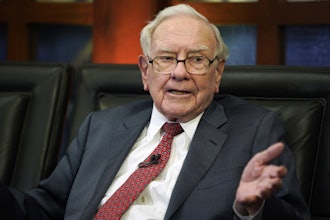
WASHINGTON, DC — Consumer packaged goods (CPG) companies need to plan for a “1-5-10” market in the United States during the next five years, in which digital’s current 1 percent penetration will likely expand to 5 percent and could accelerate to as much as 10 percent in short order, according to a new report, The Digital Future: A Game Plan for Consumer Packaged Goods, prepared for the Grocery Manufacturers Association (GMA) by The Boston Consulting Group (BCG), Google, and Information Resources, Inc. (IRI). The report highlights how CPG companies can best position themselves for growth and unlock digital and e-commerce opportunities.
Digital penetration of 5 percent represents nearly one-half of total CPG growth during the next five years, meaning that companies without an effective digital capability risk stagnation, loss of share, and even shrinking sales. Early movers, on the other hand, have the opportunity to establish leading positions that will be difficult for others to infiltrate. Digital penetration rates will vary in different locations and categories. Some categories could see digital penetration of 30 percent or more by 2018.
“Like most other industries, the CPG industry is experiencing the signs of digital disruption,” said Elise Fennig, vice president of Industry Affairs, GMA. “That’s why it was vitally important for GMA to examine how CPG companies can holistically adapt their digital and e-commerce agendas to plan for the future effectively. We intend for the work completed by the BCG, IRI, and Google team to be a go-to resource for GMA members—regardless of where they fall on the digital maturity continuum today.”
“The CPG industry is fast approaching a tipping point, driven by a confluence of trends,” said Patrick Hadlock, a partner at The Boston Consulting Group and a coauthor of the report. “Consumers are embracing technologies, devices, and services that make everyday tasks such as shopping, cooking, and even commuting quicker, easier, more fun, and more efficient. This is fragmenting the purchasing pathway as consumers regularly switch back and forth between digital and physical channels, and they interact digitally both in and outside of stores.”
The Digital Future shows that the impact of digital is felt most acutely at the early stages of the purchasing pathway. Almost 40 percent of offline shoppers and more than 30 percent of online shoppers reported that technology's impact is greatest during the discovery phase. More than a quarter of both offline and online shoppers said that its biggest impact is in the search phase. In addition, almost a quarter of in-store shoppers reportedonline activity as one of the three most influential factors on their purchasing pathway.
Digital channels currently have the greatest influence on purchases of home care and general food products but are likely to expand in importance during the next five years as the market moves to a 1-5-10 world.
Traditional retailers face a massive wave of new competitors and competitive models. Large technology companies with deep pockets are building disruptive digital grocery businesses to serve this category and support broader strategic goals. Start-ups are using value-added services to take share and build defensible niche positions, often by combining new product offerings with digital channels.
CPG manufacturers will need to participate in multiple retail models; the winning models have yet to be established, and it is likely that numerous models will prevail.
“The cost of inaction for incumbent manufacturers is ceding control of their brands, share position, and margins in the fast-growing digital channel,” said Jamil Satchu, a partner at IRI Global Analytics and Consulting and a coauthor of the report.
“Companies that do not play in the digital game are likely looking at flat or shrinking sales. Brand equity is at risk as the purchasing pathway shifts online and consumers more often search for and discover brands digitally. But the experience of other sectors demonstrates that early movers often establish tough-to-trump positions and advantages.”
The report argues that while many companies have established a digital presence — a website, some digital advertising, a presence in social media—most have yet to fully integrate digital into their operating model, build a big-data analytical capability, pursue a multichannel (or omnichannel) strategy, or tailor their product offerings to the digital or e-commerce marketplace.
All companies can make a series of low-risk, 'no regret' moves that will better prepare them for a 1-5-10 world. These steps include developing anintegrated strategy for how far the company needs to go and how to get there, shifting investments to establish a digital brand presence, building the necessary capabilities and organization for a fast-moving digital world, and shaping the evolution to digital with channel partners. Manufacturers also need to recast their existing capabilities, including product placement, marketing content development, and supply chain management, for the digital world.
A copy of the report can be downloaded here.
About The Boston Consulting Group
The Boston Consulting Group (BCG) is a global management consulting firm and the world’s leading advisor on business strategy. We partner with clients from the private, public, and not-for-profit sectors in all regions to identify their highest-value opportunities, address their most critical challenges, and transform their enterprises. Our customized approach combines deep insight into the dynamics of companies and markets with close collaboration at all levels of the client organization. This ensures that our clients achieve sustainable competitive advantage, build more capable organizations, and secure lasting results. Founded in 1963, BCG is a private company with 81 offices in 45 countries. For more information, please visit bcg.com.
About The Grocery Manufacturers Association
The Grocery Manufacturers Association is the voice of more than 300 leading food, beverage, and consumer product companies that sustain and enhance the quality of life for hundreds of millions of people in the United States and around the globe. Founded in 1908, GMA is an active, vocal advocate for its member companies and a trusted source of information about the industry and the products consumers rely on and enjoy every day. The association and its member companies are committed to meeting the needs of consumers through product innovation, responsible business practices and effective public policy solutions developed through a genuine partnership with policymakers and other stakeholders. In keeping with its founding principles, GMA helps its members produce safe products through a strong and ongoing commitment to scientific research, testing, and evaluation, and to providing consumers with the products, tools and information they need to achieve a healthy diet and an active lifestyle. The food, beverage and consumer packaged goods industry in the United States generates sales of $2.1 trillion annually, employs 14 million workers and contributes $1 trillion in added value to the economy every year. www.gmaonline.org






















